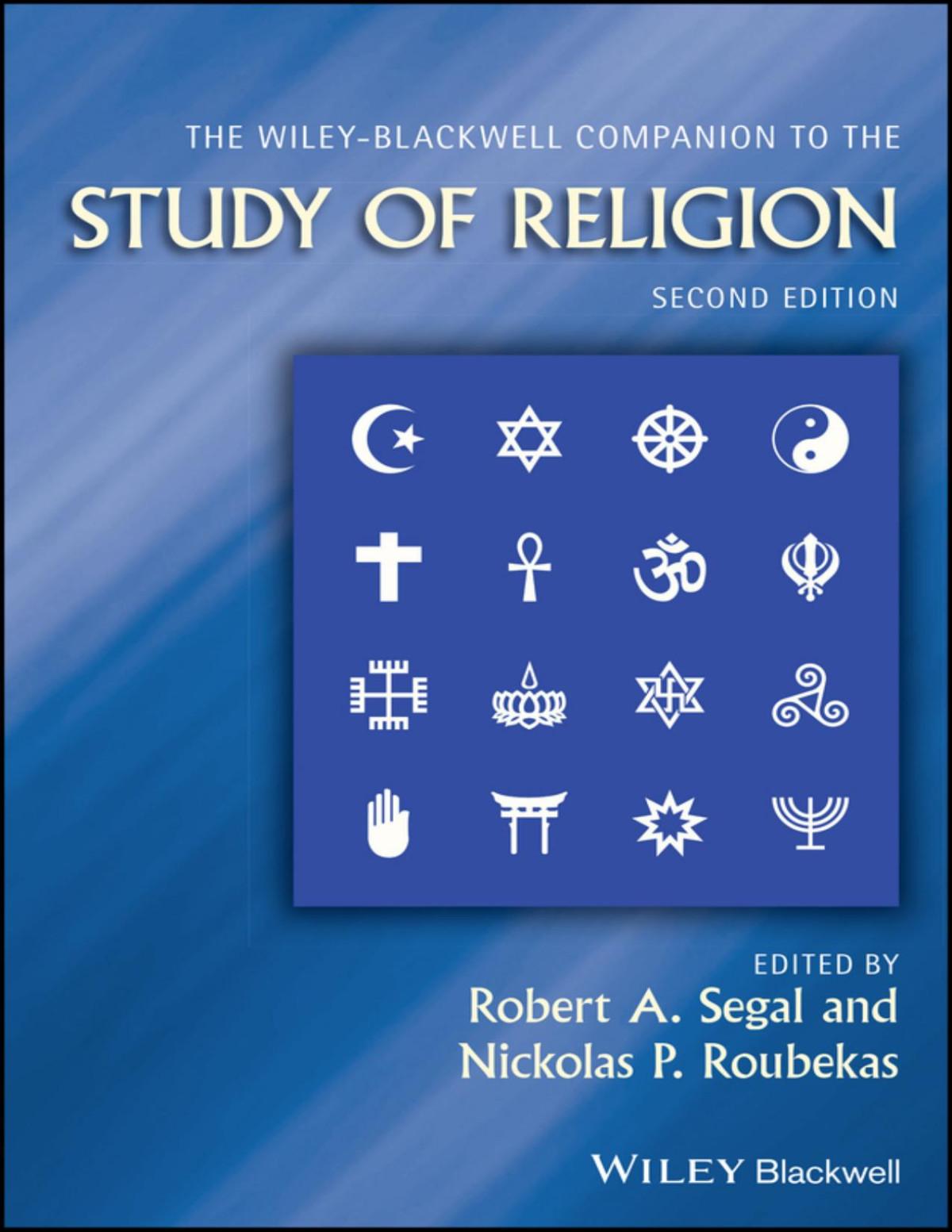
https://ebookmass.com/product/the-greatest-of-these-johnbradshaw/

Instant digital products (PDF, ePub, MOBI) ready for you
Download now and discover formats that fit your needs...
The Power Of The Cross John Bradshaw
https://ebookmass.com/product/the-power-of-the-cross-john-bradshaw/
ebookmass.com
Steps To Salvation John Bradshaw
https://ebookmass.com/product/steps-to-salvation-john-bradshaw/


ebookmass.com
Beneath a Frosty Moon Rita Bradshaw [Bradshaw
https://ebookmass.com/product/beneath-a-frosty-moon-rita-bradshawbradshaw/
ebookmass.com
Wiley-Blackwell Companion to the Study of Religion
Nickolas P. Roubekas
https://ebookmass.com/product/wiley-blackwell-companion-to-the-studyof-religion-nickolas-p-roubekas/
ebookmass.com


Snack Foods: Processing and Technology Suvendu Bhattacharya
https://ebookmass.com/product/snack-foods-processing-and-technologysuvendu-bhattacharya/
ebookmass.com
Girls in Contemporary Vampire Fiction Agnieszka Stasiewicz-Bie■kowska
https://ebookmass.com/product/girls-in-contemporary-vampire-fictionagnieszka-stasiewicz-bienkowska/
ebookmass.com
Introduction to Programming with Java: A Problem Solving Approach 3rd Edition John Dean
https://ebookmass.com/product/introduction-to-programming-with-java-aproblem-solving-approach-3rd-edition-john-dean/
ebookmass.com
McGraw-Hill Education SAT, 2020 edition Christopher Black



https://ebookmass.com/product/mcgraw-hill-education-sat-2020-editionchristopher-black/
ebookmass.com
Further Statistics 1 For AS and A Level Coll.
https://ebookmass.com/product/further-statistics-1-for-as-and-a-levelcoll/
ebookmass.com


The Clash of Legitimacies: The State-Building Process in
https://ebookmass.com/product/the-clash-of-legitimacies-the-statebuilding-process-in-late-medieval-lombardy-andrea-gamberini/
ebookmass.com


Published by It Is Written P.O. Box 6, Chattanooga, TN 37401
Copyright © 2023 by It Is Written. All rights reserved. Edited by Vanessa Boeser. Cover design by Nestor Rasi. Layout by Jennifer Sarria.
Additional copies of this book and a host of other spiritual resources are available from It Is Written. For more information call toll free 1-888-664-5573 or visit itiswritten.shop
Unless otherwise noted, all Bible texts are from the Authorized King James Version or from the New King James Version, copyright 1979, 1980, 1982 by Thomas Nelson, Inc. Used by permission.
Printed in the United States of America
ISBN 978-1-63569-405-5

It’s one of the most talked about, sung about, and written about things in the history of talking, singing, and writing and yet is still not easy to define. A dictionary might define love as a deep affection for or a strong liking or interest in something. Which, when it comes to love, is about as inadequate a definition as you can find.
One might feel affection for one’s niece or nephew or puppy or one’s neighbor’s grandchild. Is that love? It may well be. If love were a strong liking or interest in something, one may love baseball, jigsaw puzzles, or accordion music. Yet when the songwriters write about love, they’re not typically talking about jigsaw puzzles or polka.
There have been so many songs written about love that Paul McCartney even wrote a song about the preponderance of love songs. “You’d think that people would’ve had enough of silly love songs,”1 he wrote in his 1976 number-one hit song. The chorus of the song contained just three words: “I love you.”2
But the question is: What is love? “O my Luve’s like a red, red rose, that’s newly sprung in June,”3 wrote Robert Burns in the 1700s. In “When You Are Old,” a young W.B. Yeats wrote in 1891, “But one man loved the pilgrim soul in you, and loved the sorrows of your changing face.”4 King Solomon wrote the Song of Solomon, a love story, about 1,000 years before Jesus was born.
1 Paul McCartney, “Silly Love Songs,” Songfacts, https:// www.songfacts.com/lyrics/paul-mccartney-wings/sillylove-songs, accessed January 2, 2023.
2 Ibid.
3 Robert Burns, “My Luve is like a Red Red Rose,” BBC, https://www.bbc.co.uk/arts/robertburns/works/my_luve_ is_like_a_red_red_rose/, accessed January 2, 2023.
4 William Butler Yeats, “When You Are Old,” Poetry Foundation, https://www.poetryfoundation.org/poems/43283/ when-you-are-old, accessed January 2, 2023.
One of the highest-grossing movies of all time was a love story titled, “Love Story.”5 And while the motion picture (starring Ali MacGraw and Ryan O’Neal) told the tale of university students who married and then went through adversity together—a love story—much of what is referred to today as “love” would not nearly rise to that level. What is termed “love” might often more appropriately be termed “lust” or “infatuation.”
The human love affair with love goes back a very long way. Ancient Romans had a goddess of love, Venus. To the Greeks, she was Aphrodite. Temples were built and dedicated to her. Rome and Greece were not unique in their homage to love, as many cultures had gods and goddesses of love.
Today, the Western world has even set aside a day on which to remember love. It is estimated that Americans spent almost $24 billion on Valentine’s Day in 2022,6 making it the
5 Arthur Hiller (director) and Erich Segal (writer), “Love Story,” IMDb, https://www.imdb.com/title/tt0066011/, accessed January 2, 2023.
6 “2022 Valentine’s Day Spending,” National Retail Federation, https://nrf.com/research-insights/holiday-and-seasonal-trends/valentines-day, accessed January 2, 2023.
fifth-largest consumer spending event on the calendar.7 However, other than goosing retailers’ profits, it’s hard to see what Valentine’s Day actually accomplishes. A cynic might wonder if the man who buys his wife a gift on Valentine’s Day is doing so because he has to or if the woman who buys something for her man does so because she knows how bad it might look should she not do so. Americans spending $24 billion celebrating Valentine’s Day does nothing to mitigate the divorce rate. While there are 1.6 million marriages each year, there are 630,000 divorces (a statistic that fails to include data from five US states).8 And this at a time when more and more people are choosing to forego marriage and live instead in common-law arrangements.
Some of the most well-known and best-loved verses of the Bible deal with the subject of love. “For God so loved the world that He gave His
7 Elana Dure, “Valentine’s Day Shoppers Are Expected to Spend $23.9B in 2022,” The Balance, https://www. thebalancemoney.com/happy-valentine-s-day-retailersfeeling-the-love-3306043, accessed January 2, 2023.
8 “Marriage and Divorce,” CDC, https://www.cdc.gov/ nchs/fastats/marriage-divorce.htm, accessed January 4, 2023.
The
only begotten Son,” according to John 3:16. “I have loved you with an everlasting love,” God declared through the prophet Jeremiah (Jer. 31:3). And then, one of the most profound statements ever written about God—and about love. John wrote in 1 John 4:8, “God is love.” Not that God loves, which, of course, He does. But that God is love. The thought impressed John so much that he repeated it eight verses later. “God is love.”
And we can think of many instances that would support that incredible proposition. The Creation of the world. That was an act of love. Extending the lives of Adam and Eve after they sinned. Liberating Israel from Egyptian tyranny. Relocating Israel to the Promised Land. Jesus forgiving the woman taken in adultery. Jesus healing people or raising some from the dead, forgiving the thief on the cross.… There are many, many examples of the immense love of God in action.
However …
It wouldn’t be fair or honest to ignore some of the more challenging aspects of God’s dealings with the human family. About 1,600 years after the Creation of the world, God destroyed the world. A cataclysmic flood ended the lives of
every person on the planet with the exception of only eight souls. Everyone else—dead. The planet itself was destroyed. Apart from those animals that got on the ark—seven of every clean creature and two each of the unclean—animal life was also destroyed. Every person but eight, and every creature other than those that got on Noah’s ark, was destroyed. And yet, God is love.
Some of the most spectacular movements of the power of God involved the death of many people. At Mt. Carmel, shortly after God sent fire from heaven, the prophet Elijah killed 400 false prophets. A day of great victory for God was also a day where blood was shed in abundance. What was it John wrote? “God is love.”
God was repeatedly responsible for the defeat of great armies. In the time of King Jehoshaphat, a powerful military bloc threatened to totally destroy the inhabitants of Judah. But by the power of God, Judah’s enemies turned on each other. A signal victory was won for the armies of Jehoshaphat, without them having to fire a shot. But while it was a glorious day for Judah, it cannot be forgotten that what made the day especially glorious was something especially tragic. Multitudes lost their lives. And God willed it so.
People are troubled by this. And perhaps they would be less troubled if the Bible did not confidently proclaim that “God is love.” It was under the aegis of the Holy Spirit that the city of Jericho was destroyed. The inspired record states that Joshua’s armies “utterly destroyed all that was in the city, both man and woman, young and old, and ox, and sheep, and ass, with the edge of the sword” (Josh. 6:21, KJV). Six hundred or so years later, during the reign of King Hezekiah, 185,000 Assyrians lost their lives in a single night. In Gideon’s day, the Midianites and the Amalekites, “like grasshoppers for multitude” (Judges 7:12, KJV), were routed by Gideon’s God-directed armies.
So why did God direct the destruction of entire people groups? And how can He do such a thing and still be “love”? First, we remember that God is “not willing that any should perish but that all should come to repentance” (2 Peter 3:9). While someone is putting together a list of nations defeated at the behest of God, it should not be forgotten that God not only created the world but has extended life and breath to everyone who has ever lived. His mercies are “new every morning” (Lam. 3:23, KJV). “Great is thy faithfulness,” the prophet wrote (Ibid.). It is God who
upholds “all things by the word of His power” (Heb. 1:3). It isn’t intellectually honest to charge God with cruelty while choosing to ignore the many, many evidences of His goodness and love. Yet the fact remains, “God is love” (1 John 4:8) appears in the same Bible as “Now go and attack Amalek, and utterly destroy all that they have, and do not spare them. But kill both man and woman, infant and nursing child, ox and sheep, camel and donkey” (1 Sam. 15:3).
So why did God—who is love—direct King Saul to destroy the Amalekites?
The Amalekites were the descendants of Esau. The union of Esau’s son, Eliphaz, and a concubine named Timna produced, among others, a child named Amalek.
The Bible record states that shortly after Moses led God’s people out of Egypt via the miraculous Red Sea crossing, “[t]hen came Amalek, and fought with Israel in Rephidim” (Exod. 17:8, KJV). This unprovoked attack resulted in the famous battle during which Aaron and Hur secured victory for God’s people by holding up Moses’ arms during the battle. “And it came to pass, when Moses held up his hand, that Israel prevailed: and when he let down his hand,
Amalek prevailed” (verse 11, KJV). Duplicitous Balaam, who once carried on a conversation with a donkey, spoke of Amalek under the inspiration of the Spirit of God and said, “Amalek was the first of the nations; but his latter end shall be that he perish for ever” (Num. 24:20, KJV).
In Deuteronomy, God said of Amalek:
‘Remember what Amalek did to you on the way as you were coming out of Egypt, how he met you on the way and attacked your rear ranks, all the stragglers at your rear, when you were tired and weary; and he did not fear God. Therefore it shall be, when the LORD your God has given you rest from your enemies all around, in the land which the LORD your God is giving you to possess as an inheritance, that you will blot out the remembrance of Amalek from under heaven. You shall not forget.’ (Deut. 25:17–19)
So, God holds a grudge? Not by any means. God knew that the same people who had attacked Israel once would do so again and again. The Amalekites were not upstanding citizens. By the time Saul was king, a little more than 1,000 years
before the birth of Jesus, they were profoundly wicked, having rejected every evidence they had witnessed for the goodness and power of God. Fully aware of Israel’s miraculous deliverance from Egypt, they remained defiant. Yet it wasn’t anger that moved God to order their destruction. God knew that several hundred years after Amalek’s first encounter with Israel and Israel’s God, the Amalekites would never repent. The Amalekites were not like your rowdy neighbors, with a penchant for playing loud music late into the night, leaving old cars in their front yard, drinking too much, and getting into occasional trouble with the law. These were not lovable rogues. Every Amalekite child grew up to be a devil, to live a miserable life, and to make other people miserable. Rather than leave them to pollute the earth with their presence; rather than leave them to commit atrocity after atrocity; rather than let their children grow up with a hopeless future, God knew it was better that they were gone. It does sound harsh: “Go and destroy them all.” But it wasn’t mayhem, malice, hate, or venom that led to the destruction of the Amalekites. It was … love. A God of love knew in His wisdom that this group of people would never repent
The
and that Israel would be better for the Amalekite’s absence. Also, God was safeguarding the birth of the Messiah. The Amalekites, left unchecked, fueled by the devil, may well have succeeded in carrying out Satan’s plans. Since the fall of the world, the promise of the Messiah has been the ultimate beacon of hope for this sinful planet. And while the advent of the Savior has meant hope for humanity, it also promises the end of evil. While promising everlasting life to human beings, the same event guarantees the destruction of Satan and his angels. God told Satan as far back as the Garden of Eden, “He [the Messiah, Jesus] shall bruise your head” (Gen. 3:15).
So, it’s easy to understand why Satan was so determined to prevent the Messiah from being born. The birth of the Messiah meant the guarantee of Satan’s ultimate destruction was drawing near. There is no doubt that throughout His life on Earth, Satan sought to distract and derail Jesus. The Bible records that when Jesus was a man, Satan did all he could to distress and even destroy the divine Son of God. If Jesus had yielded to the devil’s temptations in the wilderness, all would have been lost for the human race. Satan knew that and therefore bent his every energy
that Jesus might fail in His mission to redeem the human family.
This is why Satan worked so hard through groups like the Amalekites. He intended to thwart heaven’s attempts to save sinners. There was too much at stake for God to allow the devil to succeed. Further, in the destruction of the Amalekites and others like them, it was revealed to the surrounding nations that Israel’s God was the only true God. The destruction of the Amalekites was an appeal to other nations to turn from their sin and surrender their hearts to God. What’s fascinating is that King Saul’s refusal to obey God and destroy the entire Amalekite nation very nearly resulted in the total annihilation of Israel.
Approximately 500 years after Samuel ordered Saul to eradicate the children of Amalek, the remarkable drama that was the story of Queen Esther unfolded. Furious that Mordecai refused to pay him homage, the vile Haman, an official in the Medo-Persian government of King Artaxerxes, conspired to commit genocide against the entire Jewish nation. It was only the bold intervention of Esther that prevented Haman’s murderous plot from being carried out. The Bible
The
states that Haman was an Agagite (Esther 3:1), a descendent of the people group Saul faithlessly failed to deal with after the will of God.
It was love that moved God to call for the eradication of the Amalekites. Love for the Amalekites, as God saw the future of the nation and knew in His wisdom that the Amalekites would never rise above their wickedness and sin; love for His people, Israel, as He sought to preserve them from their vicious enemies; and love for all who would afterward have the opportunity to accept Jesus as Lord and Savior and inherit everlasting life.
The same could be said for the world in the time of Noah’s flood. It was love that led God to destroy a world that was marinating in sin, whose inhabitants were completely given over to sin and wickedness. It wasn’t spite or acrimony that saw God kill all but eight people. It was love; love for the lost, and love for the world to come.
Part Two
What is love, really?
Real love is often confused for something far less consequential. While a 14-year-old boy
The
might think he loves his pretty neighbor, he is not experiencing what a person of experience would identify as love. He is infatuated. Love is often confused with lust. It is not love that separates a home. The employer didn’t “love” her handsome employee, nor did the man “love” the attractive co-worker who ended up wrecking his marriage. Illicit “love” is not love but lust. People have a happy knack for confusing love with a rush of dopamine or norepinephrine. Genuine love is always in accordance with the will of God. It is so important to God that we accurately understand love, that He placed an entire chapter in the Bible for the purpose of helping us to recognize and therefore aspire to genuine, biblical love.
In 1 Corinthians chapter 13, Paul wrote: Love suffers long and is kind; love does not envy; love does not parade itself, is not puffed up; does not behave rudely, does not seek its own, is not provoked, thinks no evil; does not rejoice in iniquity, but rejoices in the truth; bears all things, believes all things, hopes all things, endures all things. Love never fails. (1 Cor. 13:4–8)
The inspired writer penned what must be the greatest explanation of love that has ever been written. He states that love “suffers long and is kind.” Love is patient, according to Paul. And tellingly, Paul doesn’t say love is mostly patient or almost always patient. Paul challenges his readers by telling them that love is patient—always and in every situation.
Most people are going to read Paul’s words and quickly realize that they don’t possess that kind of love. Which may well be the point of Paul writing what he wrote. Humans have not been called by God to be better versions of themselves but instead to “press toward the mark for the prize of the high calling of God in Christ Jesus” (Phil. 3:14, KJV). The objective of the gospel is that sinners might become “a new creature,” where “old things are passed away; behold, all things are become new” (2 Cor. 5:17, KJV). In other words, we are called to love as God loves.
Love, according to the inspired apostle, “does not envy.” Love is not jealous. In Acts 7:9 (KJV), Luke writes that Joseph’s brothers were “moved with envy” when they sold him into slavery. There is no competitiveness or jealousy in the heart of the one who has true love for another.
Paul states that love “does not parade itself.” It is not boastful. Love does not brag, and it is not arrogant. It is not rude and does not seek its own benefit. That one point may be a revelation for many people. Real love, genuine love, does not seek its own advantage. We’ll come back to this idea. Genuine love is more inclined to seek the good of another person than to seek one’s own advantage. According to Paul, love is “not provoked.” Which means the irascible person with a hair trigger for a temper still has a lot of growing to do. Between road rage, stress, a lack of sleep, and challenging personal circumstances, it seems more people than ever default to venting their frustration. Yet the love of God, according to Paul, is not provoked.
Love “thinks no evil,” Paul writes. And as if the bar had not yet been raised high enough, Paul takes love even higher. Love “does not rejoice in iniquity, but rejoices in the truth.” Love doesn’t delight in unrighteous behavior, whether one’s own or that of another. It bears, believes, hopes, and endures. And Paul sums up this phenomenal passage of his letter to the Corinthian church by stating succinctly that “love never fails.” It never comes to an end.
No one knows a single person who manifests that kind of love. It’s worth asking the question: What kind of love is this? The follow-up question is obvious: How can a selfish, fallen person love that way? The sixth of the seven churches in the book of Revelation is the church at Philadelphia. Situated about seventy-five miles inland from the Aegean Sea, and roughly the same distance from the churches at both Ephesus and Smyrna, Philadelphia, known as Alasehir, is also known for the production of raisins and fresh fruit. It was named Philadelphia in honor of a man who earned the nickname, Philadelphos or “one who loves his brother.” Derived from the Greek words adelphos, which means “brother,” and phileo, meaning “love,” Philadelphia means, “brotherly love.” It is one of several Greek words that mean “love.” Phileo is brotherly love. You don’t phileo your mother or your parakeet. When Mary and Martha alerted Jesus about the failing health of their brother, Lazarus, their message said, “Lord, behold, he whom You love [phileo] is sick” (John 11:3). With some exceptions, phileo in the Bible connotes brotherly love.
Although the word eros does not appear in the Bible, the concept of eros does. Eros is the
sensual love of a man for a woman or a woman for a man. The word “erotic” is derived from the Greek word eros. Eros was the Greek god of love and sex. To the Romans, he was Cupid.
Another Greek word for love which, like eros, does not appear in the Bible, is storge, a familial love, such as the love of a parent for a child. But beyond phileo, eros, and storge, there is another love which all people are called to manifest. And this is the love of God for the fallen human race.
In the most famous verse in the Bible, Jesus states, “For God so loved the world, that he gave his only begotten Son, that whosoever believeth in him should not perish, but have everlasting life” (John 3:16). The word translated “love” is not phileo, eros, or storge but agape. “For God so agaped the world, that he gave his only begotten Son.”
When John wrote that “God is love,” he wrote that “God is agape” (1 John 4:8,16). Paul wrote to the church in Rome and said that “tribulation, or distress, or persecution, or famine, or nakedness, or peril, or sword” shall not be able to “separate us from the love [the agape] of God” (Rom. 8:35, 39). He wrote, “I am persuaded, that neither death, nor life, nor angels, nor principalities, nor powers, nor things present, nor things
The
to come, nor height, nor depth, nor any other creature, shall be able to separate us from the love of God, which is in Christ Jesus our Lord” (Rom. 8:38–39, KJV). Again, the word used for “love” is the Greek word “agape.”
Agape is not a sentimental love. Love is a principle, not an emotion. Agape love, the love of God for the human family, the love God calls us to exercise towards Him and our fellow human, is a self-sacrificing love. It wasn’t phileo love that drove Jesus to the cross. It isn’t storge love that God feels towards the lost. Instead, it is a deep, unshakable love that puts others first without expecting anything in return. Which makes agape very different to what most people consider love to be.
True, biblical love isn’t expressed by chubby angels with bows and arrows. The trivialities of Valentine’s Day, when entire supermarket aisles are dedicated to candy and chocolate, entirely miss the mark in terms of expressing the depths of love.
Agape love is a choice and is not forced or coerced.
Love cannot be separated from God. And the Bible depicts love in some beautiful ways. In Genesis, “Jacob served seven years for Rachel; and they seemed unto him but a few days, for the love he had to her” (Gen. 29:20, KJV). Solomon
wrote, “Many waters cannot quench love, neither can the floods drown it: if a man would give all the substance of his house for love, it would utterly be contemned” (Song of Sol. 8:7, KJV). Jesus said, “[T]he Father Himself loves you” (John 16:27).
The agape love of God is so vast that even Bible writers wrestled with how best to explain it. Writing in 1 John 3:1, John wrote, “Behold what manner of love the Father has bestowed on us, that we should be called children of God!” To understand it, John wrote, “Look upon it. Behold it.” Hearing about it evidently wasn’t enough. John urged his readers to look upon the love of God, to examine the way it was manifest. “We sinners,” John wrote, “the children of God! That is love!”
As mentioned, John 3:16 equates the depth of the love of God with the death of Jesus in behalf of the human family. The divine Son of God dying in behalf of sinful mortals; the sinless One, dying for the sins of the world; Perfection itself, coming so low as to assume the guilt of a rebel planet, that the undeserving might be treated as though they were deserving of the honor due the Savior. This is the love of God for humanity. Every sinful, erring, flawed, wicked, corrupt individual that ever lived
The
means so much to the God of heaven that He was willing to give Jesus that we might be “reconciled to God by the death of his Son” and “saved by his life” (Rom. 5:10, KJV).
Romans 5:8 says, “But God demonstrates His own love toward us, in that while we were still sinners, Christ died for us.” It’s not just that God died for us, as incredible as that is. Paul said Jesus died for us “while we were still sinners.” That “when we were enemies we were reconciled to God through the death of His Son” (verse 10). Jesus prayed for the very people who put Him to death! “Father, forgive them,” He prayed, “for they know not what they do” (Luke 23:34, KJV). In a similar way, the martyr Stephen, when he was about to be executed, “kneeled down, and cried with a loud voice, Lord, lay not this sin to their charge” (Acts 7:60, KJV). After the golden calf apostasy, Moses prayed God would forgive Israel before adding, “[B]ut if not, I pray, blot me out of Your book which You have written” (Exod. 32:32).
You’ll notice what characterizes the love of God for undeserving sinners. Jesus came into the world “not to be ministered unto, but to minister, and to give his life a ransom for many” (Matt.
20:28, KJV). Jesus washed the feet of His disciples, including the feet of the one who would, minutes later, betray Him to be ruthlessly killed. Paul described Jesus when he wrote:
Let this mind be in you, which was also in Christ Jesus: who, being in the form of God, thought it not robbery to be equal with God: but made himself of no reputation, and took upon him the form of a servant, and was made in the likeness of men: and being found in fashion as a man, he humbled himself, and became obedient unto death, even the death of the cross. (Phil. 2:5–8, KJV)
The love of God is a love that puts others first. God’s love is a self-sacrificing love that doesn’t ask what it may receive in return. Loving God’s way is to love with that same attitude. Love without gain. Love without self-interest. Love without ego or pride or greed.
It is a concept that is foreign to the natural human heart. Since sin entered the world, people have been naturally selfish, motivated primarily by their own interests and desires. Not so with God. Hebrews 7:25 states that Jesus “always lives
The
to make intercession for” “those who come to God through Him.” It’s an incredible thought. Unlike kings and queens and heads of state and earthly dignitaries, Jesus did not seek honor for Himself when He came into the world. He sought to glorify His Father (John 8:49) and reveal His Father to the world (John 14:9).
This is why the Bible is specific in identifying the kind of love Christians are to have for God and their fellow person. God calls us higher than manifesting brotherly love or familial love or sensual love. God calls us higher by calling us lower. God calls us to honor by commissioning us to be servants of others and to live and love with the interests of others before the interests of ourselves.
So, what does that look like when it comes to loving God? How is genuine love for God to be demonstrated in the life of a believer?
Of course, Valentine’s Day has nothing at all to do with the Bible. It has little to do with love. Caricatures of little angels with bows and arrows portraying love actually represent the Roman god of love, Cupid. Frankly, a little blasphemous.
Imagine if the love of God was like Valentine’s Day. That is, if just once a year God showered His love upon you! Thankfully, God’s love is constant. It never fails. Every single day, God’s love is towards you. Jeremiah wrote that God’s mercies are “new every morning” (Lam. 3:23).
The sad truth is that many people don’t know the love of God. And for some people, that’s compounded by their experiences. Some people have been rejected or been through tough times or have made choices that didn’t turn out the best. Some feel as though nobody loves them and that they’ve made too many mistakes. Under some circumstances, it can be hard to really know the love of God. So how can you know—for sure—that God loves you? Whenever I have asked people how they have seen God’s love in their life, I have been told something like, “When I needed a new vehicle, I got one.” “I found a new job right after losing my last one.” “We have food on our table.” “We went to the Bahamas on vacation.” “I almost wrecked my car, and it was a miracle I didn’t.” Yes, and all that’s good. But the problem is, what if the accident had occurred? What if you lost your job and went broke? What if you DIDN’T get a new vehicle and you had to rely on public transport? The blessings
